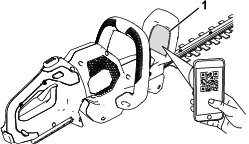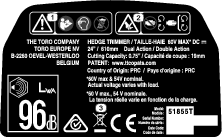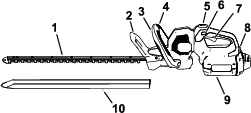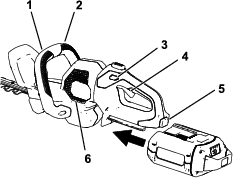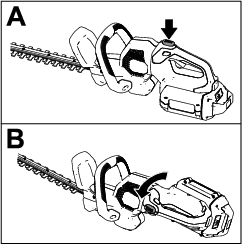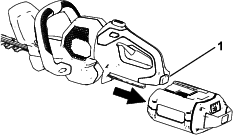This hedge trimmer is intended to be used by residential homeowners
to maintain bushes and hedges. It is designed to use lithium-ion
battery pack Model 81825, 81850, 81860, or 81875. Using these products
for purposes other than their intended use could prove dangerous to
you and bystanders.
Model 51855T does not include a battery or a charger.
Read this information carefully to learn how to operate and
maintain your product properly and to avoid injury and product damage.
You are responsible for operating the product properly and safely.
Visit www.Toro.com for more information, including safety tips,
training materials, accessory information, help finding a dealer,
or to register your product.
Whenever you need service, genuine Toro parts, or additional
information, contact an Authorized Service Dealer or Toro Customer
Service and have the model and serial numbers of your product ready. Figure 1 identifies
the location of the model and serial numbers on the product. Write
the numbers in the space provided.
Important: With your mobile device, you can scan the QR code (if equipped)
on the serial number plate to access warranty, parts, and other product
information.
 |
For assistance, please see www.Toro.com/support
for instructional videos or contact your Authorized Service Dealer
before returning this product.
|
